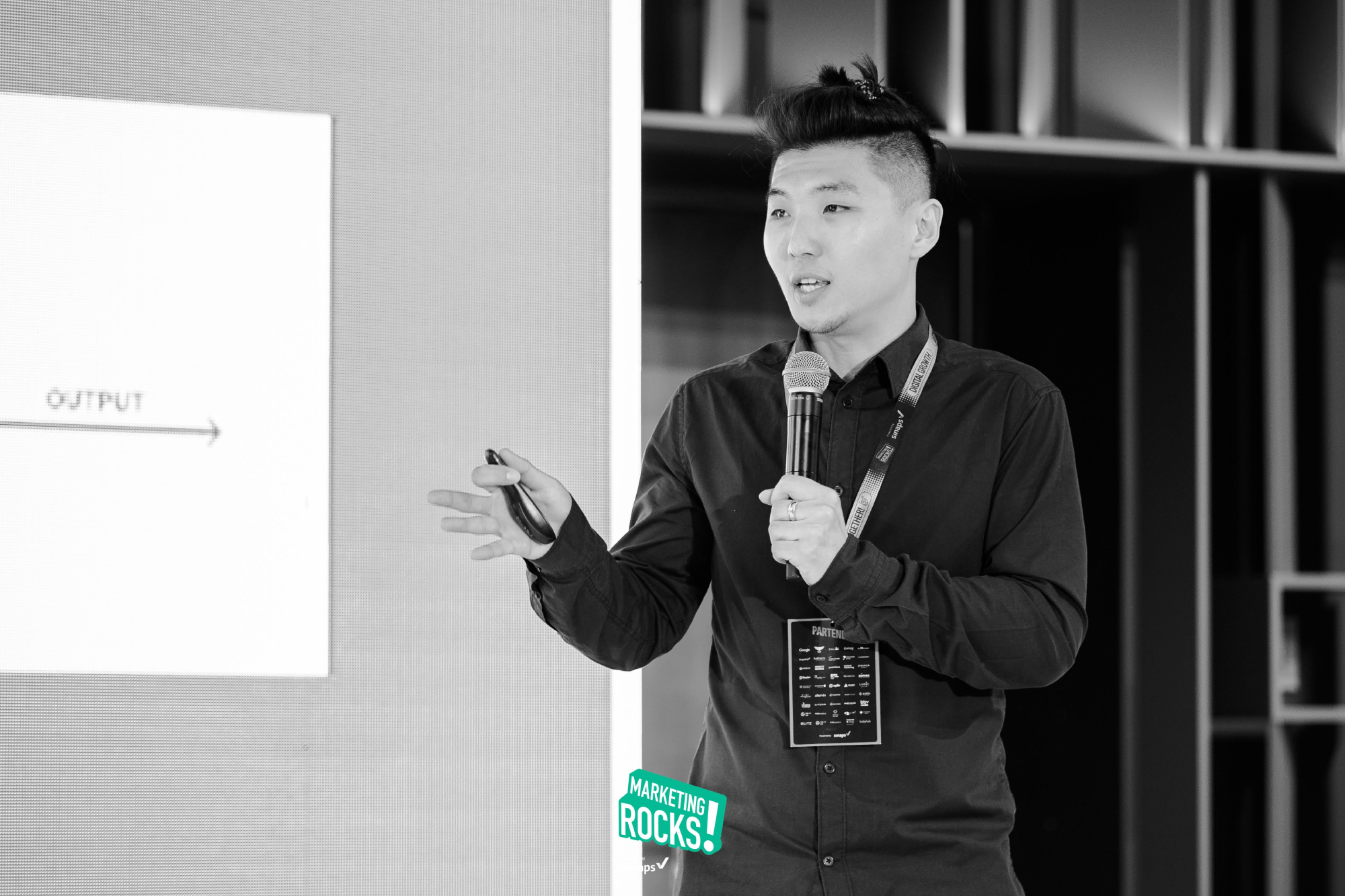On the 13th of May, I had the pleasure of delivering an exciting presentation during Marketing Rocks #2 – a major digital marketing themed event in Iasi, Romania.
As part of this presentation, I have attempted to provide the audience into an overview of how the Internet has evolved: from simple static websites to a full-fledged, dynamic digital virtual space that continues to shape more and more of our lives. Everything we do nowadays is influenced by technology, there is a myriad of apps and platforms competing for our attention and to fullfil our ever-increasing needs. Going forward, we have to be aware of the “path” we have taken so far in this technological evolution and what options are there going forward.
This overview also entails acknowledging many of the issues that this technological development and the rise of tech giants has brought upon us:
- monopolization / consolidation / gatekeeping (closed systems such as Apple’s App Store, Google’s attempt at monopolizing comparison shopping services, Meta owning 4/5 of the largest social media platforms)
- issues of data ownership (who owns the data? can AI models be trained on YOUR data?)
- echo-chambers and the inner workings of algorithms influencing public discourse, our wants, needs and interests
Individually, these are all fairly known issues. Tech giants have been known to attempt consolidating as much of the market as possible, often favoring their own services/products to the detriment of others, undermining fundamental aspects of a free-market economy. Moreover, the role that social media algorithms plays into pushing certain types of content into our personalized feeds has a direct impact on our perception of the world. Certainly these have all been subject of public debate in the recent years – especially in the context of political/election interfering: some examples include Brexit/Trump (Cambridge Analytica) and the 2024 Romanian presidential election. Moreover, the rise of “bot-farms” and spam content with a hidden agenda is more and more obvious – certainly, if these have the capability of influencing political decisions or the public outlook on certain topics, malevolent actors have a vested interest in investing, building and running such systems.
However, working on the presentation has made me realize there is a more profound, philosophical aspect behind all of this. As technology develops, we can draw a solid analogy between “digital spaces” and “physical spaces”. By physical spaces I mean the real world: we live in cities and societies that are governed by certain values that we deem to be morally good. Such values include: democracy, free speech, equality of opportunity. As such, don’t we have the moral obligation to also uphold the same values in the digital realm?
Especially considering that the internet takes up more and more of our time and attention, it is imperative to ask ourselves these questions:
- Shouldn’t we incorporate these values in the design & development process of these platforms?
- Should tech giants be allowed to design and develop these algorithms in any way they deem comercially-feasible – instead of establishing clear guidelines on a societal level?
These aspects drew me to explore concepts such as community-governance and decentralized applications. It feels only natural that since we spend so much time on these apps – we should have a SAY in how they are developed and how they further evolve. In a similar way to how the city council decides what is permitted or not on a city-planning level, similarly there should be an entity that decides what should be permitted or not on a digital level. Of course – we must be careful in defining who this authority is and how it works – to prevent the other side of the coin: censorship / influencing these values in a way that is disadvantageous to our society.
I believe Web3 may provide a solution here: we can strive to allow the partial decentralization of tech giant products that we use everyday. We, as a community, should have a say in what kind of content gets to be “favored” by the algorithm and how the algorithm itself works. A multidisciplinary committee should analyze exactly how these platforms influence us – and how they can be designed to promote positive values instead of having profit&engagement as their only incentive.
Below I will provide the presentation recording & the slides (they are in Romanian, since the event was held in Iasi, Romania).
https://drive.google.com/file/d/1JX5MAisthptkG7tkPsfiUUtVckPBSKkZ/view?usp=drive_link
https://docs.google.com/presentation/d/1m1bfLN51JJeNGFqkThdYW5i5PuGEUmGkHYoFx-PF4Ls/edit?usp=sharing


Leave a Reply